ADN’s Special Session – Reducing Avoidable Disaster Deaths through Effective Mitigation and Response
This page contains the Description, Poll, Feedback, Recording, Timetable and Speakers’ Biographies for the Special Session on Reducing Avoidable Disaster Deaths through Effective Mitigation and Response.
Description
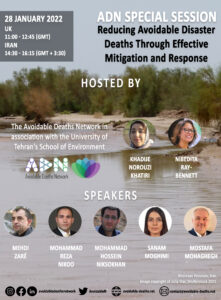 The Special Session, titled: Reducing Avoidable Disaster Deaths through Effective Mitigation and Response was held virtually on 28 January 2022 at 11:00 AM – 12:45 PM GMT | 14:30 PM – 16:15 PM GMT+3:30. It was organised by the Avoidable Deaths Network (ADN) in collaboration with the University of Tehran. Dr. Khadije Norouzi Khatiri and Dr. Nibedita Ray-Bennett chaired the Special Session.
The Special Session, titled: Reducing Avoidable Disaster Deaths through Effective Mitigation and Response was held virtually on 28 January 2022 at 11:00 AM – 12:45 PM GMT | 14:30 PM – 16:15 PM GMT+3:30. It was organised by the Avoidable Deaths Network (ADN) in collaboration with the University of Tehran. Dr. Khadije Norouzi Khatiri and Dr. Nibedita Ray-Bennett chaired the Special Session.
This Special Session was an open event. ADN’s Special Sessions are suitable for disaster responders, students, academics, researchers, policymakers, opinion formers, and practitioners interested in avoidable deaths, UN’s Sendai Framework for Disaster Risk Reduction’s Goal A and B, and the Sustainable Development Goals.
Poll Results
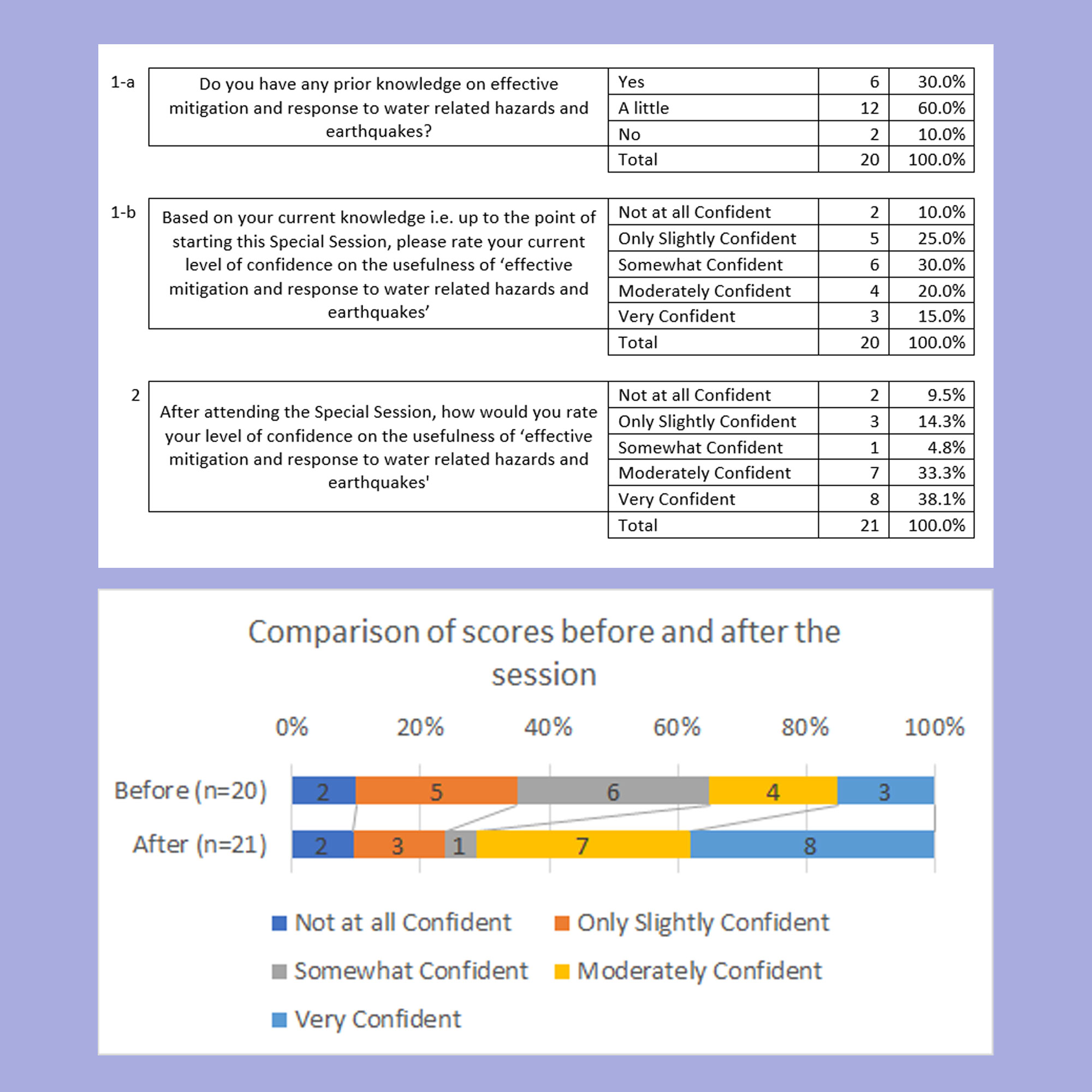
Feedback
Following the event, a speaker shared their thanks, saying:
“Thank you very much ADN for inviting me as a researcher to be part of your session today, to share with you what my research is about”.
Recording
The Special Session can be viewed on our YouTube Channel.
Timetable
|
Time (GMT) |
Session Title |
Speaker |
| 10:45 – 11:00 |
Conference digital platform login on Zoom & gathering of speakers |
|
| 11:00 – 11:10 |
Housekeeping and Welcome Speech |
Mr Julian Coetzee & Dr Khadijeh Norouzi Khatiri |
| 11:10 – 11:20 |
Introduction to the ADN & Poll |
Dr Nibedita S. Ray-Bennett & Dr Hideyuki Shiroshita |
| 11:20 – 11:40 |
Reducing avoidable deaths from water crisis, floods, and drought through effective mitigation measures in Iran |
Professor Mehdi Zaré |
| 11:40 – 12:00 |
Reducing flood risk through effective management measures in Tehran, Iran |
Dr Mohammad Reza Nikoo |
| 12:00 – 12:20 |
Reducing earthquake deaths from effective seismic code in Lisbon |
Ms Sanam Moghimi |
| 12:20 – 12:40 |
Experience of coordinating disaster response to save lives |
Dr Mostafa Mohaghegh |
| 12:40 |
Poll |
Dr Hideyuki Shiroshita |
| 12:40 – 12:45 |
Closing of Ceremony |
Dr Hideyuki Shiroshita |
Speakers’ Biographies
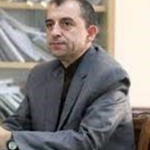 Professor Mehdi Zaré (he/him) is a Professor of Engineering Seismology in the International Institute of Earthquake Engineering and Seismology (IIEES). He is an Associate Member and Head of the Geology Division within the Department of Basic Sciences at the Academy of Sciences in Tehran, Iran.
Professor Mehdi Zaré (he/him) is a Professor of Engineering Seismology in the International Institute of Earthquake Engineering and Seismology (IIEES). He is an Associate Member and Head of the Geology Division within the Department of Basic Sciences at the Academy of Sciences in Tehran, Iran.
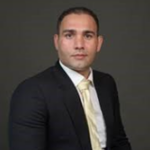 Dr. Mohammad Reza Nikoo (he/him) is an Associate Professor of the Department of Civil and Architectural Engineering at the Sultan Qaboos University, Oman and a Member of the Iranian Federation of Young Elite. Mohammad was previously an Associate Professor at Shiraz University. With an academic focus on water resource management, Mohammad has been an active PhD and MSc theses supervisor and has published more than 120 journal papers. He was selected as a Top Young Researcher in Shiraz university for three consecutive years in 2018, 2019 and 2020, and Iran’s Eminent Young Scientist in 2020.
Dr. Mohammad Reza Nikoo (he/him) is an Associate Professor of the Department of Civil and Architectural Engineering at the Sultan Qaboos University, Oman and a Member of the Iranian Federation of Young Elite. Mohammad was previously an Associate Professor at Shiraz University. With an academic focus on water resource management, Mohammad has been an active PhD and MSc theses supervisor and has published more than 120 journal papers. He was selected as a Top Young Researcher in Shiraz university for three consecutive years in 2018, 2019 and 2020, and Iran’s Eminent Young Scientist in 2020.
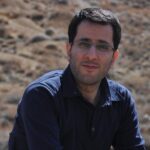 Mr. Mohammad Hossein Niksokhan (he/him) is an Associate Professor in School of Environment, College of Engineering, University of Tehran, Iran. With over 15 years of field experience in water resource management and river engineering, he has honed his area of expertise to that of water quality, management and allocation. Mohammad received his PhD in Water Engineering-Civil Engineering from the School of Civil Engineering within the College of Engineering at the University of Tehran. He holds a MSc in Water Engineering-Civil Engineering and a BSc in Agricultural Irrigation and Drainage Engineering from the University of Tehran with distinguished Honours.
Mr. Mohammad Hossein Niksokhan (he/him) is an Associate Professor in School of Environment, College of Engineering, University of Tehran, Iran. With over 15 years of field experience in water resource management and river engineering, he has honed his area of expertise to that of water quality, management and allocation. Mohammad received his PhD in Water Engineering-Civil Engineering from the School of Civil Engineering within the College of Engineering at the University of Tehran. He holds a MSc in Water Engineering-Civil Engineering and a BSc in Agricultural Irrigation and Drainage Engineering from the University of Tehran with distinguished Honours.
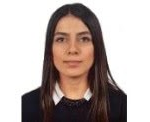 Ms. Sanam Moghimi (she/her) is a Ph.D. researcher at the National Laboratory of Civil Engineering within the Structural Engineering Department at the LNEC, Lisbon. She is also a Ph.D. student in UMinho, Guimarães, researching seismic risk decision-making support by conducting cost benefit analysis to select mitigation strategies. Sanam received her MSc in Natural Disaster Management from Tehran University in 2012 and published her findings on earthquake recovery strategies in peer-reviewed conferences and journals. In 2005, Sanam graduated in Civil Engineering from Ferdowsi University of Mashhad, Iran. Her research interests also include project management, disaster recovery planning and damage assessment.
Ms. Sanam Moghimi (she/her) is a Ph.D. researcher at the National Laboratory of Civil Engineering within the Structural Engineering Department at the LNEC, Lisbon. She is also a Ph.D. student in UMinho, Guimarães, researching seismic risk decision-making support by conducting cost benefit analysis to select mitigation strategies. Sanam received her MSc in Natural Disaster Management from Tehran University in 2012 and published her findings on earthquake recovery strategies in peer-reviewed conferences and journals. In 2005, Sanam graduated in Civil Engineering from Ferdowsi University of Mashhad, Iran. Her research interests also include project management, disaster recovery planning and damage assessment.
 Mr. Mostafa Mohaghegh (he/him) is an international disaster risk management specialist with 25 years of experience in the national system, the United Nations and International Red Cross and the Red Crescent Movement. He has coordinated many disaster response operations in different regions and led the development of disaster management and risk reduction policies, strategies and laws and regulations at national and international levels. He also led the process for the establishment of a number of regional centers and offices on disaster risk reduction and management.
Mr. Mostafa Mohaghegh (he/him) is an international disaster risk management specialist with 25 years of experience in the national system, the United Nations and International Red Cross and the Red Crescent Movement. He has coordinated many disaster response operations in different regions and led the development of disaster management and risk reduction policies, strategies and laws and regulations at national and international levels. He also led the process for the establishment of a number of regional centers and offices on disaster risk reduction and management.
Chair’s Profiles
 Dr. Khadije Norouzi (she/her) holds a Ph.D. in Environmental Engineering and a M.Sc. in Natural Disaster Management from the University of Tehran. She is currently a postdoctoral researcher at Sultan Qaboos University, where her study focuses on urban runoff. She is also a lecturer at the University of Applied Science and Technology in Iran, where she teaches disaster management. She has 7 years of research experience at the University of Tehran and her research interests include multi-hazard risk, evacuation, emergency shelter, flood management, and water resource modeling.
Dr. Khadije Norouzi (she/her) holds a Ph.D. in Environmental Engineering and a M.Sc. in Natural Disaster Management from the University of Tehran. She is currently a postdoctoral researcher at Sultan Qaboos University, where her study focuses on urban runoff. She is also a lecturer at the University of Applied Science and Technology in Iran, where she teaches disaster management. She has 7 years of research experience at the University of Tehran and her research interests include multi-hazard risk, evacuation, emergency shelter, flood management, and water resource modeling.
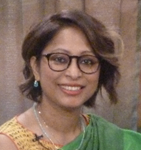 Dr. Nibedita S. Ray-Bennett (she/her) is an Associate Professor in Risk Management at the University of Leicester’s School of Business. She is the founding President of the Avoidable Deaths Network (ADN), dedicated to reducing global disaster deaths.
Dr. Nibedita S. Ray-Bennett (she/her) is an Associate Professor in Risk Management at the University of Leicester’s School of Business. She is the founding President of the Avoidable Deaths Network (ADN), dedicated to reducing global disaster deaths.
For more details, please click on this link: https://www.avoidable-deaths.net/our-team/nibedita-ray-bennett/

